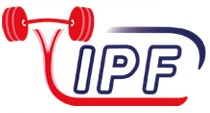On his career as a powerlifter …
I got into powerlifting about 20 years ago. When I was young, I played football, rugby, tennis, badminton and squash. I also did karate for four years and a lot of running. I was quite good, I got third in the mile in the Highland Games. But all that went out the window when I had a serious accident in 1980. I was 24. I nearly lost my right leg and essentially that killed my ability to participate competitively in all the sports I had done in my youth. So, I ended up going to the gym to try and keep fit because I couldn’t run any more. I wasn’t very good at leg exercises because there was a lot of pain, so I ended up doing a lot of upper body exercise. It was just a case of recovering and developing the fitness first of all to walk on crutches and later with a walking stick and then without a walking stick. After that I went to the gym to start strengthening up my leg and I just really never stopped going after that. Around my 40th birthday, I got my bench up from something totally mediocre to 140 and I’ve maintained that level for the last 25 years.
In 2002 in Manchester, I saw some disabled lifting, Paralympic powerlifting as it’s called now, and I thought I could do that. Up until then I thought that powerlifting was a 3-discipline. I wasn’t disabled enough to represent Britain internationally, but a couple of years later, the disabled championships were merged with the able-bodied bench press and on that day, I discovered that there was such a thing as bench press only competitions and I switched over from disabled lifting to able-bodied bench press. I also found out about bench shirts around about that time which were great for the ego because you could lift a lot more in a bench shirt.
Apart from the leg injury, I’ve also had a trapped nerve in my right forearm since 2014 and it’s really curtailed what I’ve been able to do. I can´t do narrow grip bench for example, but happily with full width, I can now cope with what pain there is and work through it.
On speaking …
The first time I got into speaking was in a little place called Rhinos in Oldham, around 2006. The guy that was organising it, Ian Shaw, was trying to do everything. There were very few volunteers about at the time, it wasn’t the well-structured sport it is now. I’d done a lot of public speaking in school and through my career in local government and I offered to help by doing the announcing. It turned out I was very good at it. One of the head British coaches, a guy called Barrie Nelson was encouraging me to be more and more outspoken and demonstrative in the way I was announcing, and the next thing I was asked to do the British Championships, which I did for three or four years until I moved back to the Outer Hebrides in 2011. Just before I moved back, the last speaking I ever did was at the European Juniors up in the northeast. I thought that was the end of it. I moved back to the Hebrides and there were no more opportunities to be a speaker. Then, two and a half years later, I got a call from the people that were organising the world championships in Stavanger. They were looking for a speaker for the world championships and they’d heard good things about me from some of the Norwegian team. There were going to be 3 of us doing the job, but I ended up doing every session of the 2013 world championships. I was trying to be a little bit more than a bland speaker, involving the crowd and getting them to cheer and I was telling them what the lift was for, which speakers rarely did back then. I really enjoyed it.
Then I got a phone call from Ralph Farquharson asking me if I fancied being a commentator.
On commentating …
Ralph had seen me at several British championships, and he’d been at Stavanger. He knew there wasn’t a powerlifting commentator because, until then, the sport had never been televised properly. He thought that what I’d shown in Stavanger was what was needed behind the mic in commentary.
It was Oreshaze in Hungary, where I started my relationship with Viva TV. I had never met any of the Viva guys before and I had no idea what to expect. On the plane over I actually said to my girlfriend, if I can’t do it, I’ll try to help out with the speaking instead. And the rest is history.
The first competition after the pandemic shutdown was the European Open in Pilsen. I was still unable to travel, due to Covid restrictions at that time, and this is when I was asked to commentate remotely. There’s nothing like being there and also meeting up with the team. We´re friends apart from just being colleagues and it’s nice to meet but doing it online was a million times better than not being able to do it at all. So, there I was, sitting in my front room, in a remote house, on a remote island, over a thousand miles away, with two computer screens. I could watch the action on one screen and the scoreboard on the other. I tried to visualise myself in the place, because I’ve been in Pilsen several times before and I know exactly where I sit, and I know Ralph’s to the right and Richard’s to the left. I know where the stage is, and I know the venue, so I was pretending I was there. I normally use a lip mic, but I invested in a decent pair of headphones with a built-in microphone and to all intents and purposes I was there. I dived into the screen.
A lot of commentary is interpreting the scoreboard for the viewers and that was actually the most difficult thing for me because my scoreboard was about 5 to 10 seconds behind the one Ralph was using. That might not sound a lot but when you’re in third round deadlifts and there’s a lot of last-minute changes as coaches play tactics, it was very difficult to keep up and I was having to rely on Ralph’s input whenever there were changes. A couple of times I lost the link. The second time was in the final round of deadlifts, and it was the heavyweights. The last lift of the competition was a world record attempt to win the gold medal. I didn’t miss it, but I only got back in two lifts before.
Afterwards, I got a couple of messages on Facebook congratulating me on great commentating and wishing me a safe journey home! I’m certainly prepared to do that again should the need arise. The internet link up actually worked well. And when it was over, I was at home, I didn’t have to go up to the restaurant for a plate of something and I could walk my dogs after the day’s sessions.
On life on a remote island …
I live on the Isle of Lewis, which people think of as a tiny little island, and it is population wise, with a population of about 22,000. It’s actually the third biggest of the British Isles, after the British mainland and Ireland. I live in a village five miles out of Stornoway. I have a gym, so I was able to train all through lockdown and I didn’t miss a single session.
My ancestors came from Stavanger in Norway. They came over in the 12th century to build the cathedral in Orkney. Later they moved down the east coast of Scotland and then my grandfather moved over to the Isle of Lewis. He was a fish merchant and fishing was one of the main industries in Lewis at that time. So, my paternal origins are in Stavanger which is where it all started for me in a way.
Travelling is always a big thing for me, living where I do. I don´t fly from Lewis because flights are cancelled too often. So, I go to the mainland on the ferry, drive down to an old school friend in Perth, stay with him overnight, and then get a flight from Edinburgh. On the way back, if I can get back to Edinburgh for about 9 or 10 in the evening, there’s a chance that I can make the overnight ferry. It’s only a two and a half hour crossing. It’s quite a difficult journey and in the winter, I keep an eye on the forecast and if it’s really bad I’ll leave a day early. But I made the choice to move back to the Outer Hebrides although I don’t think I appreciated how difficult it would be to do the competitions. If I won the lottery, I’d probably buy 2 or 3 houses, one of them would be in Spain and one of them would be on the Scottish mainland but I think I’d always keep a base here.
On competing …
I still compete and living in a remote place makes it difficult. I want to be an active lifter for as long as I can. I won the British equipped championships in February 2021, and I was planning to defend my title at the British classic championships in August 2021, but I had to forego that because I was commentating on the Pilsen championships. I did my last competition in Scotland in October 2021. I was aiming for a new Scottish record of 145 but I missed it. I did some commentating while I was there - these events only happen because volunteers give up their time. I'd like to volunteer more, but geographically that's not really possible, so when I go to a competition, I like to do some volunteering too.
I sort of turned into a songwriter over lockdown. I started off trying to write novels and I realised it wasn’t for me. It’s a long laborious process, it takes years to get a novel published if you’re lucky enough and even then, there’s no guarantee that anyone would read it.
Nevertheless, I belong to the Stornoway writer’s circle. I recently wrote some poetry because there was a visiting string quartet playing and they were doing a piece by a new Scottish composer that required local poems to be recited in the interludes. The music director met with the writer’s circle and got a few of us to write poems. Mine was one of the poems that were selected. I stood up on the stage and I read it out during one of the interludes and it just struck me that I’d spent a couple of days on the poem, and I’d got it across to a lot of people. It’s not much of a jump from poetry to songs, it’s been said that a poem is a song without a tune. So, I started to write songs. I thought some of the early ones were wonderful but looking back they weren’t! I would have said two years ago I can’t sing and now I say I can sing. I’m not very good, but when you practice your own songs night after night your breathing improves, and you learn what key is right for which song.
I haven’t really had much chance to do much with my songs yet. One of my early songs was actually picked up by a local performer and it’s the title track of a cd that he released last year, but I’ve written a dozen or so songs since that are better. I went to an open mic session in the local pub last week thinking should I maybe do a couple of my songs there and I think the answer is no. It was a bit raucous, and two thirds of the people were just talking and shouting at each other as this poor guy in the corner was trying to sing. I don’t really think that’s any environment for me to release new music. That’s still to be figured out! Of course, the lockdown hairstyle is part of the singer songwriter look! It’s going to stay. I’ll just tie it up in a man bun!
















